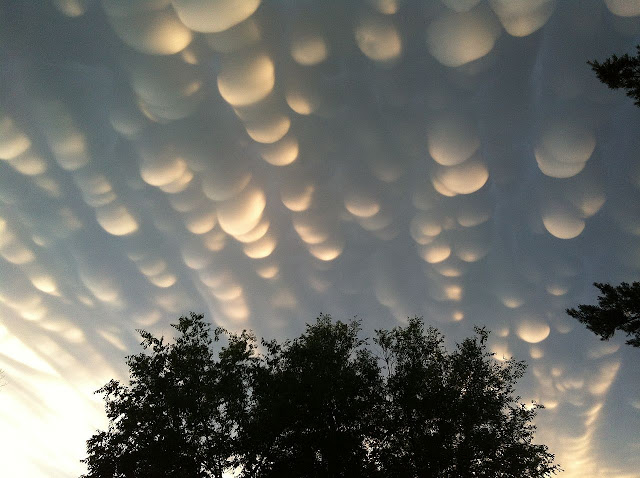Normal cloud bottoms are flat. This is because moist warm air that rises and cools will condense into water droplets at a specific temperature, which usually corresponds to a very specific height. As water droplets grow, an opaque cloud forms. Under some conditions, however, cloud pockets can develop that contain large droplets of water or ice that fall into clear air as they evaporate. Such pockets may occur in turbulent air near a thunderstorm. Resulting mammatus clouds can appear especially dramatic if sunlit from the side. These mammatus clouds were photographed over Regina, Saskatchewan, Canada in 2011.
Image Credit: Craig Lindsay
Explanation from: http://apod.nasa.gov/apod/ap121023.html




Mammatus Clouds over Saskatchewan
ReplyDeleteStunning!!!
ReplyDelete